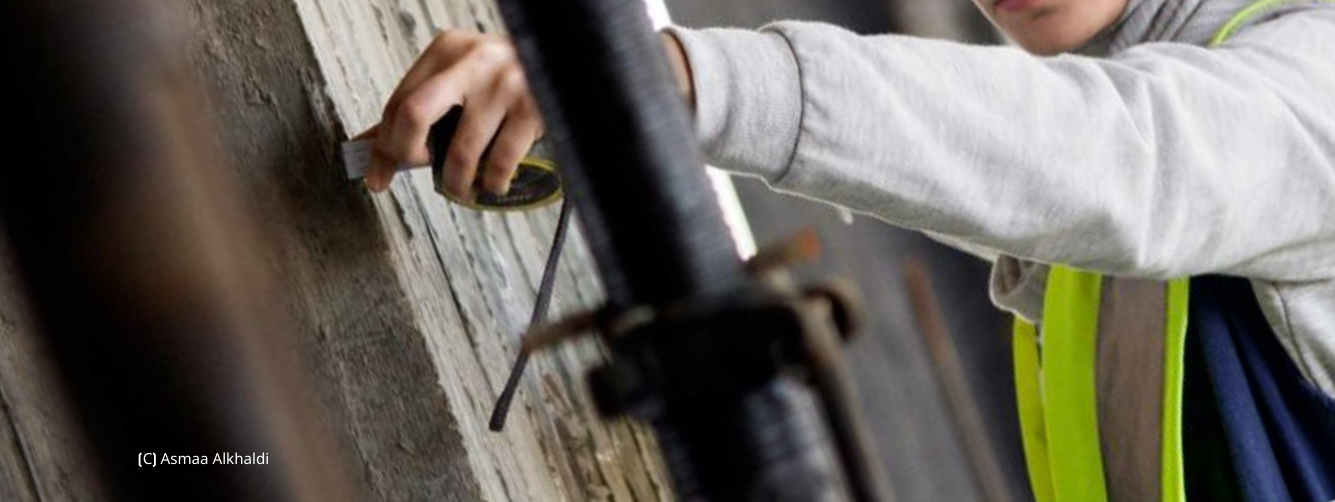"The project offered us an alternative vision for what the print press should look like –free and independent."
This month, MIFTAH interviews Wisam Abed Rabbo, a participant in MIFTAH's Media Monitoring project, "A critical reading of print media" which teaches students to look at Palestinian print media with a critical eye.
The project was carried out in partnership with the Konrad Adenauer Foundation and included the publication of ten reports throughout 2010, which give an analytical and critical review of the way in which Al Quds, Al Ayyam and Al Hayat Al Jadida newspapers deal with current and political events. Five sessions, most of which have already been held, were carried out in coordination with Palestinian universities and their media departments to present the findings of these reports. Students subsequently discussed the reports and the alternatives newspapers could adopt to offer better coverage of pressing issues.
MIFTAH: Could you us where you study and what kind of activities you are involved in?
I am from Jerusalem and am a third year student in the media department at Al Quds University. In my spare time I like to volunteer as an academic counselor in schools and am involved in cultural and community work in Jerusalem schools.
MIFTAH: How did you become involved in MIFTAH's activities?
I have followed the Media Monitoring Unit's work in the newspapers and also through the university. The unit came to our department to offer its information to the students on ways of critically reading the press away from any political inclinations.
MIFTAH: What do you think of the Media Monitoring Unit's project on critical reading of print media?
I think the project is very important. It showed neutrality in reading the newspapers but with a critical eye. It also allowed students to participate and interact with this critical reading. Those in charge of the monitoring unit were able to extract all the necessary news pieces and re-edit them in a non-biased way, which is the way all news should be written.
MIFTAH: How would you assess the level of interaction from the students with the project?
There was very constructive interaction from the students. They were very involved in the project and showed an ability to pinpoint many of the weaknesses and dysfunctions in each paper and thus set for themselves a strong foundation for dealing with each news piece objectively.
MIFTAH: How have the reports and workshops carried out by the Media Monitoring Unit added to your knowledge and experience both at the academic and personal levels?
At the academic level, the workshops and reports helped me in my university courses on the same subject. They also helped me to realize new concepts that would not have come to mind before such as looking at news pieces with a neutral and therefore transparent eye. As for the personal level, I also learned to look at things with more of a neutral eye, far from the overwhelming factional affiliations in the Palestinian arena, especially since Palestinian society is currently suffering from a deep split. The project thus offered an alternative vision of what the print press should look like – which is free and independent, far from political affiliations. It should be a media that serves the overall Palestinian interest, which was what the students took away from their participation in these critical readings.
MIFTAH: Do you feel that your participation in MIFTAH's workshops helped you develop your own media skills and knowledge?
No doubt. The project helped me add neutrality, transparency, objectivity and accuracy in choosing words and titles to news items in addition to the type of picture we should use and highlighting the most important news. These will definitely be guidelines for me in the future on how to phrase and edit any news item that comes my way. I have no doubt it will also help me in forwarding my career in media when the time comes.
MIFTAH: How would you assess the project's impact on the other students in the media department?
I think it had a great impact. It gave clear guidelines to students for how to conduct their work in the future in a professional and objective way. This undoubtedly offers students a window into success in the media world. Critical readings in general are critical of the status quo. In this sense, the project's targeting of a certain sector of future media persons and impacting them through this project serves to raise the awareness of these students, who represent future generations, to the mistakes of today's media. This allows them to avoid these mistakes in their own future careers.
Personally, I noticed that after I participated in the workshops I found myself more eager to look over news pieces and compare them. Critical reading of the news became a part of me, even when reviewing non-press media.
MIFTAH: Now that you have participated in one of MIFTAH's projects, what would you suggest for future collaboration?
First, I would like to thank MIFTAH for the wonderful work it does. As for suggestions, I would like to see this project target other Palestinian media outlets such as a critical reading of Palestinian news channels and radio stations and even internet news sites. That would take the project to new heights.






